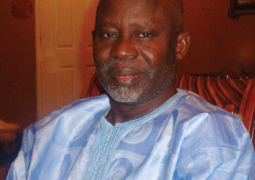National Development comes in different forms, depending perhaps on how it is translated in different nation states.
In some, it is expressed predominantly as physical development of the country: big imposing official buildings, construction of road infrastructure, telecommunications networks, some additional hospitals, and other infrastructural developments.
Some see development as an array of government projects across the various sectors. In some cases it is translated as evidence of increase in per capita income or the national GDP.
No doubt, all such accomplishments do bear a positive relation to overall development.
However, the more meaningful type of development is one that takes into account and manages to satisfy most, if not all, of the needs of the people.
Of course, to achieve that result, it is absolutely necessary to involve the people not just at the implementation stages, but more importantly even, at the conceptual, planning and programming stages.
This is so, if only because the people themselves understand their problems better than any government. The people recognize their needs better, and can assist meaningfully in evolving the most appropriate strategies and priorities.
In other words, the best development is one in which governments work in partnership with the people.
Furthermore, if that is the case, the partnership should be based on availability and access to information from which the people can make informed choices, and arrive at best practice solutions for the general progress of the country.
From the above, it stands to reason that information should not only be available; it should also be the right of the individual.
Article 9 of the Human Rights Charter does guarantee such a right. It, therefore, behoves democratic governments that are signatories to the charter to translate this requirement into their national laws and to give it enforceability status.
The Gambia has in the past been seen by many African states as a bastion for democracy and human rights. The recognition was expressed in physical terms by housing in The Gambia Africa’s loftiest institutions for human rights and democracy: the African Commission for Human and Peoples’ Rights and for the African Centre for Democracy and Human Rights Studies respectively.
This makes it incumbent on this country to serve as a model in the practice of human rights, particularly in the area of the individual’s right to information and access to information.
In maintaining and manifesting this practice, it would be commendable if the doors to information are open to both the press and individuals who have the desire and the duty to bring awareness to the public.
Denying access to information not only gives negative signals, it also has the potential to preclude meaningful development in a country.
‘All Human Beings are Born Free and Equal in Dignity and Rights’.
Universal Declaration of Human Rights, Art. 1
Read Other Articles In Article (Archive)
Access to Information and National Development
Jan 15, 2014, 9:45 AM


